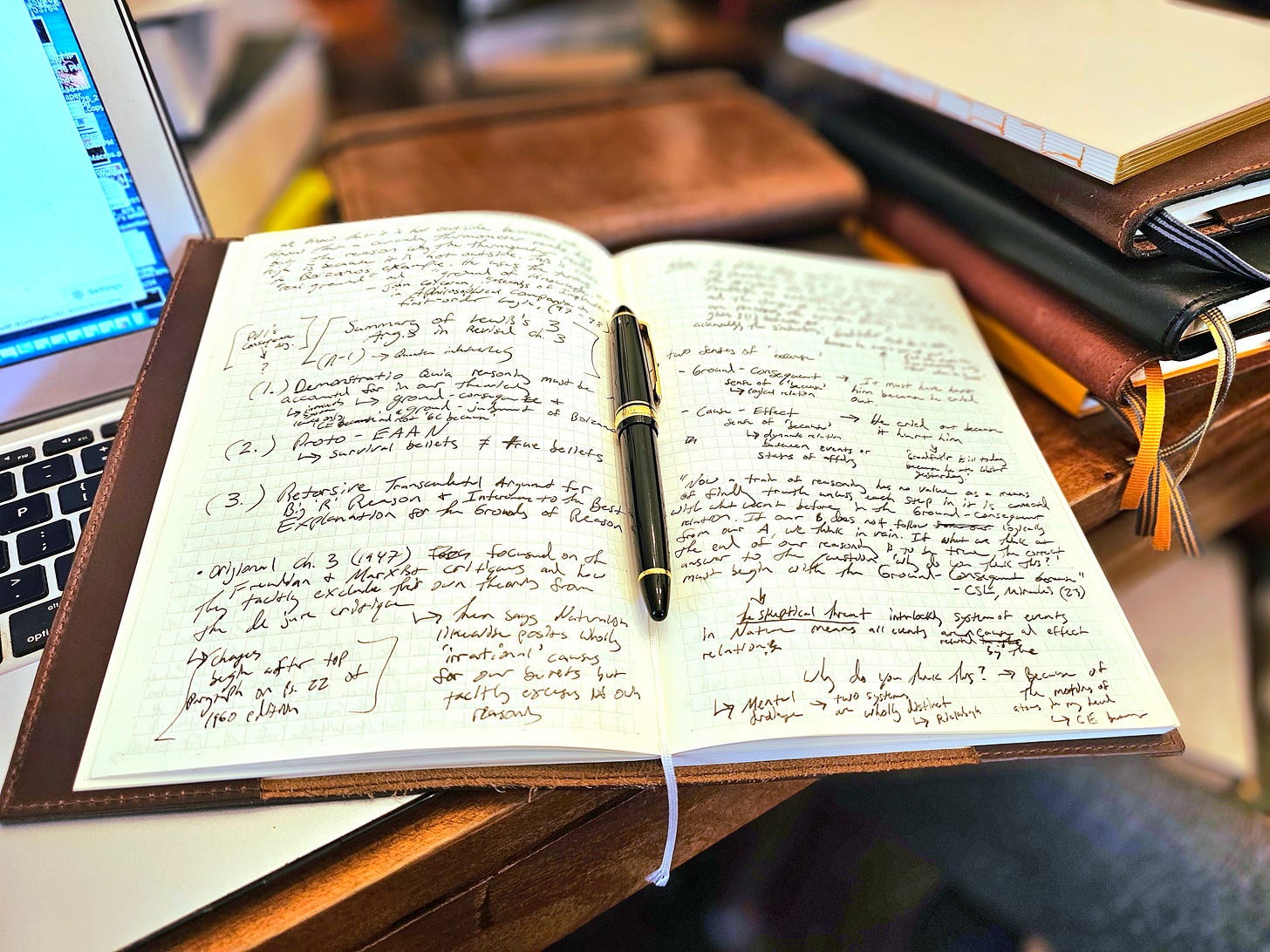Remember What You Read | 5 Ways to Keep a Notebook of Book Notes
Five Notebook Methods for Helping You Store Quotes and Information for Easy Retrieval and Better Retention
This post is too long for email. Sorry about that. It’s jammed too full of good tips, resources, and pictures of my own marginal notes and notebooks. So, just follow the prompts to the website in order to read the full post with all of the reading tips. Now on to the post:
I love reading. I love finding illuminating quotes for my various commonplace books. I love finding pertinent information for my compendiums. I love generating my own ideas about what I’ve read for my book reviews. I love finding new words to increase my own vocabulary with. And I love discussing what I’ve read with others.
I absolutely hate losing a quote. It’s so frustrating to read something wonderful and then not be able to find the source of the exact quote, especially when it’d be the perfect ornament for a Substack piece I’m writing! I hate reading something profound or finding something especially poignant only to forget where I found it and not be able to reference it for further study. And more than anything, I hate when I forget the unique insights and connections I made while reading.
These loves and hates lead me to start keeping notebooks for my book notes.
In this post I’ll cover five different ways you can keep a notebook for your own book notes, which can help you motivate yourself to continue reading through that book you started—or have been meaning to start; can help you remember your favorite quotes from the book; can help you remember the structure of the arguments or plot of the book; and can help you both generate your own ideas about the books you read and remember them later on.
You’re about to hit a paywall on this post. These kinds of notebook posts and ‘life of the mind’ tutorials support the other work which I put out for free, like my philosophy essays, read-along companion essays, science fiction and fantasy short stories. They’re also part of my research and preliminary work on my forthcoming book, Journal Like a Philosopher. So, if you like what I do here or on YouTube, and want to support my work, consider becoming a paid subscriber here on Substack and I’ll also help you develop your own study habits to support your own intellectual journey.
Past the paywall, you’ll find five detailed accounts on how you could use a notebook to help yourself get the most out of what you read. You can apply the info and instructions to a ‘digital’ notebook as well, but I’m an accidental notebook czar and I’m always going to push paper on you.
I also cover the benefits of writing marginal notes and annotations in your books and I give you some of the symbols I use in my own books and some other that have been recommended to me as well. I’m trying to jam as much value into this piece as humanly possible for you guys, so it’s a big one.
Let’s jump in.
Five ways to keep a Notebook for Book Notes
I was recently at a C.S. Lewis Institute talk given by Dr. James Beitler



